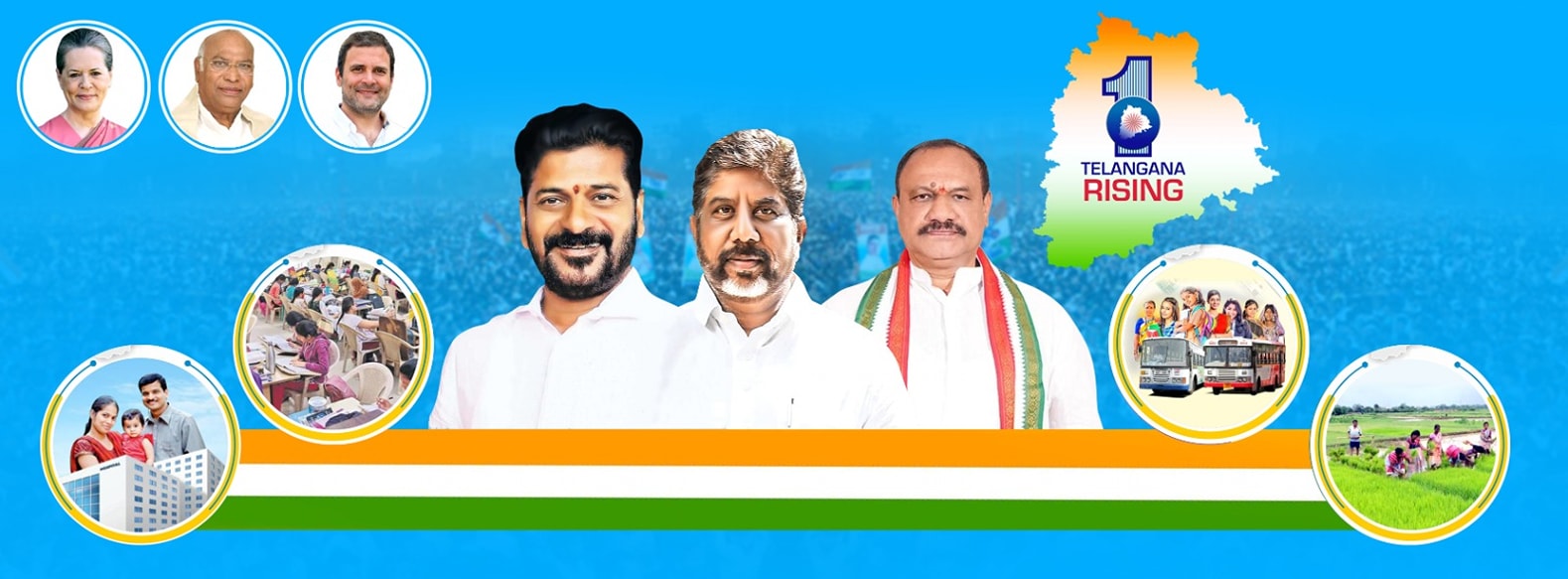Congress Talks Secularism, Delivers Exclusion? Party Snubs Telangana’s 12.5% Population in Cabinet

Hyderabad: After a wait of 13 months, Telangana Chief Minister Revanth Reddy finally expanded his cabinet by inducting three new ministers. However, the long-awaited reshuffle has done little to address a glaring gap - the complete absence of Muslim representation. Despite Muslims constituting over 12.5% of the state’s population, there is not a single Muslim minister in the incumbent Congress-led government.
According to the caste survey released by the Telangana government in February 2024, the state is home to 44,57,012 Muslims - making them an important demographic group. Still, this substantial population continues to find no voice in the state’s cabinet.
On June 8, 2025, three MLAs were sworn in as ministers. The reshuffle included Gaddam Vivek (Mala), Adluri Laxman Kumar (Madiga) and Vakiti Srihari (Mudiraj – BC). While the move strengthens Dalit and Backward Class (BC) representation, the Muslim community remains entirely excluded. This marks a historical first. Since the formation of Telangana in 2014, this is the only time the state has had no Muslim minister at all.
Under previous Chief Minister K. Chandrashekar Rao of the BRS (formerly TRS), at least one Muslim leader, Mohammed Mahmood Ali, held significant portfolios, including deputy chief minister and later home minister. His consistent inclusion, even as the lone Muslim face in the cabinet, served as symbolic recognition of the community’s presence and contribution to the state.
The incumbent Congress government, despite its majority in the 119-member Assembly with 75 seats, has not fielded or elected a single Muslim MLA. All seven Muslim legislators in the Assembly belong to the All India Majlis-e-Ittehadul Muslimeen (AIMIM). In the 40-member Legislative Council, only four Muslims are present - two from the AIMIM, one from the BRS and one nominated by the Governor. None of them are affiliated with the Congress.
This lack of representation raises questions about the Congress party’s commitment to inclusive governance, especially since it often positions itself as a secular alternative to right-wing politics. While some may argue that the party’s hands are tied due to the absence of Muslim legislators within its fold, critics suggest that the Congress could have nominated a Muslim member to the Legislative Council or ensured electoral representation in 2023.
For Telangana’s Muslims, the issue goes beyond symbolic politics. It is about meaningful participation in decision-making. As the second-largest religious group in the state, their continued exclusion from the cabinet sends a troubling signal about their place in the state’s political priorities.
In a state once known for its syncretic culture and inclusive governance, the absence of Muslim voices in the highest corridors of power raises concerns about the erosion of previous governments' legacy.
